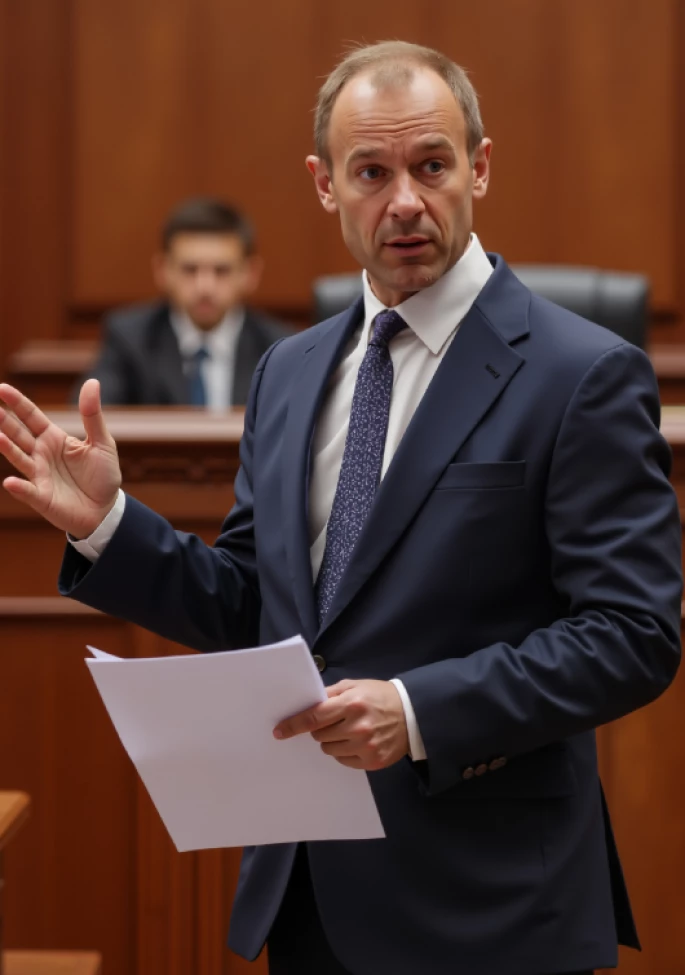While the CARES Act, PPP loans, and boosted unemployment checks helped nudge the nation out of its pandemic-induced inertia, the expected return to economic normalcy was anything but normal. Until the past few months, key labor indicators like the “quit rate” have pointed to American workers resigning from their jobs at astonishing levels, joined by many others content instead to “quiet quit” (putting no more effort into a job than the bare minimum).1 Though some economists suggest this “Great Resignation” is now over, others believe that the trend may continue for the foreseeable future. For example, a PwC survey of the global workforce revealed that a quarter of those surveyed expected to change jobs in the next year.2 And in the US specifically, a LinkedIn survey recently found that nearly “70% of Gen Z and Millennial Americans stated they planned to leave their jobs in 2023.”3 A notable segment of the workforce seems to have had enough of the employment status quo.
Theorized catalysts include unemployment benefits disincentivizing employment, perspectives being reframed by the lasting existential crisis of COVID, mounting social unrest, and a newfound appreciation for working from home. Whatever the initial causes, the effects remain. Even today, people are seeking new jobs more often or dabbling in self-employment, be it starting their own businesses and/or taking part in the gig economy by driving for Uber, delivering for Postmates, or dog-sitting on Rover. 4, 5
To those involved in corporate litigation, the public’s shifting views toward company loyalty and the employer-employee relationship beg the question: how might experiences and attitudes related to the Great Resignation impact jurors’ perceptions of large corporations? And more explicitly, is support for the movement predictive of juror bias against corporate defendants, particularly those facing employment matters? After all, the link between jurors’ anti-corporate attitudes and bias against corporate defendants has been shown time and time again. 6, 7, 8
Attorneys can often uncover juror attitudes that may be problematic for the defense through voir dire, supplemental questionnaires, and an analysis of prospective jurors’ internet presence—but only if they know what to look for. We recently conducted a survey to identify factors that may help characterize pro- and anti-Great Resignation jurors and assess the relationship, if any, to anti-corporate sentiment. This article explores our most significant early findings, which defense attorneys may find useful as they prepare for jury selection.
To shed some additional light on these issues, we recently conducted an online survey of jury-eligible respondents. The results identified key attitudes and demographics related to safetyism, discussed in more detail below.
Who Supports the Great Resignation?
The Great Resignation is a social movement that garnered press during the early months of the pandemic, when people first began to quit their jobs en masse.9 But many believe its seeds were planted long before the pandemic.10 Although the movement captures a diverse group of individuals with varying behaviors, attitudes and beliefs, and motivations, many agree that its supporters are characterized by the following:
Behaviors
At the core, movement members can be characterized by those who have recently left or are currently leaving their jobs. They also include people who are considering leaving their jobs, whether actively polishing their resumes and submitting applications or simply skimming job boards, curious to see what opportunities are available.
Attitudes and Beliefs
Supporters of the Great Resignation are often characterized by attitudes denoting a willingness to resign from their current jobs if a better opportunity presents itself, with many believing that switching jobs is often the only way to get ahead. These mindsets reveal a decreased value placed on employer-employee loyalty and a greater value placed on ensuring one's own needs are met in the workplace.
Motivations
A Pew Research Center study11 found that motivations vary, but chief among them included widespread discontent regarding 1) inadequate pay, 2) low opportunities for advancement, and 3) a lack of respect in the workplace. Great Resignation supporters seek to ease such discontent by switching jobs. Secondary reasons included difficulties with childcare, a lack of flexibility of where and when to work (e.g., remote work vs. in-office work), and a desire for better benefits, with many people responding to employers’ calls to return to the office by job hopping in pursuit of remote roles.
Our Research Findings
In September 2022, we collected preliminary data via an online survey of 200 jury-eligible respondents around the nation, assessing their attitudes and experiences regarding employment, corporations, and the Great Resignation.
Respondents’ answers to various questions allowed us to designate supporters and opponents of the movement. For example, we asked about their current, recent, or future job-hopping behavior—e.g., “Have you voluntarily left your job in the last two years,” “Have you considered leaving your job in the last 2 years,” and “Are you currently looking or do you plan to look for a new job in the near future?” They also picked between statements endorsing or opposing an attitude related to the Great Resignation, such as “If a better opportunity presented itself regarding my work situation, I would leave my employer in a heartbeat” versus “Even if a better opportunity presented itself regarding my work situation, I would stay with my current employer,” or “Oftentimes, switching jobs is the only way to get ahead” versus “Oftentimes, staying with the same employer for a long period of time is the only way to get ahead.” Lastly, they indicated how strongly they agreed with the following statement: “I have positive opinions about ‘the Great Resignation,’ the ongoing trend in which employees are voluntarily resigning from their jobs in the past two years.” Each respondent received a composite score, with higher scores indicating greater support for the movement. Based on the median value, they were split into two groups for comparison.
Demographic Characteristics of Great Resignation Supporters and Opponents
Our research revealed demographic and experiential factors associated with both support of and opposition to the Great Resignation. Interestingly, these characteristics mirrored many of the common pro-plaintiff and pro-defense characteristics we observe in cases involving large corporate defendants, with supporters of the Great Resignation more closely tracking with “plaintiff” jurors and opponents of the Great Resignation more closely tracking with “defense” jurors.
Supporters of the Great Resignation tended to be:
- Younger
- Unmarried
- Non-White
- Liberal/Moderate
- Independent
- Low- to Middle-Income Earners
Opponents of the Great Resignation tended to be:
- Older
- Divorced
- White
- Conservative
- Republicans
- High-Income Earners
How Great Resignation Attitudes Align with Other Key Attitudes
The underlying beliefs of this movement point to general anti-corporate sentiments. Our preliminary research revealed that supporters of the Great Resignation are more likely to agree both that corporations are too intrusive in Americans’ lives and that they have too much influence on government agencies. While the former sentiment speaks to jurors’ general distrust in corporations, the latter is problematic for the many corporate defendants that rely on the regulations and findings of government agencies to support their adherence to the law and the safety of their products and actions; such lines of defense may lose ground with jurors who do not trust the agencies to be neutral.
On the other hand, individuals skeptical of the Great Resignation tended toward competing viewpoints. Although the majority of our respondents agreed that corporations have too much influence on government agencies, 75% of those who disagreed held negative opinions of the Great Resignation—i.e., opponents of the movement are less likely to believe that corporations are influencing agencies.Similarly, while only around one-third of respondents agreed that most people with problems at work created those problems themselves, 72% of that group consisted of respondents with negative views of the Great Resignation. That is, opponents of the movement also tend to have stronger views of personal responsibility when it comes to issues that may arise in the workplace—an important finding for defendants facing employment-related litigation.
Where Do We Go from Here?
Attitudes like those noted above—along with the overlap between views of the Great Resignation and common juror profiles—suggest that corporate defense attorneys will benefit from eliciting jurors’ opinions on the movement as a part of their jury selection plan. Just as supporters of the movement appear to be more likely to hold sentiments unfavorable to corporate defendants, our early findings suggest that opponents of the movement may hold sentiments that are especially favorable.
Jury Selection Tips for Corporate Defendants
Defense counsel has a number of means by which to obtain key venire information in advance of jury selection. Chief among them is the development of a supplemental juror questionnaire. In courts that allow a questionnaire, attorneys can elicit the most important predictors of jurors’ opinions and judgments at trial: case-relevant experiences and attitudes (not demographics). Counsel can develop and negotiate a supplemental questionnaire that identifies the jurors most predisposed against their client while concealing their strongest supporters from opposing strikes. The right questionnaire allows attorneys to 1) provide a reliable base of information about each juror that can be refined and expanded upon during voir dire, 2) create a written record in support of cause strikes, and 3) guide effective peremptory strikes.
Despite best efforts, of course, not all jurors can be questioned during voir dire and not every issue can be covered in a supplemental questionnaire. Whether due to time constraints, venue rules (e.g., federal courts), or a judge’s whim, voir dire is often limited such that extracting every pertinent attitude and experience proves impossible. Additionally, jurors can be uncomfortable or unwilling to divulge certain information, even in a juror questionnaire. To this end, seeking out jurors’ social networking sites, blogs, public records, and other websites containing details of jurors’ work and personal histories can inform counsel’s strategy. People often show less restraint in their social media posts, as exemplified by their tendency to broadcast complaints about their employer or their employment situation. More mildly, a look at jurors’ social media can illuminate something as simple as their LinkedIn job history, allowing counsel to single out, for instance, jurors prone to job-hopping versus those content with a slow climb up the corporate ladder.
Incorporating Great Resignation Factors
When evaluating the venire, defense counsel can also gather jurors’ experiences and opinions that are linked to their support for or opposition to the Great Resignation. Perhaps a juror has a negative relationship with their employer, seems to have one foot out the door, or frequently changes jobs. Such jurors may be additional targets for the development of cause challenges or the use of peremptory strikes. On the flip side, jurors skeptical of the movement are likely to hold certain pro-corporate and pro-personal-responsibility views and may be worth keeping around. These insights mean counsel has more avenues to identify favorable and unfavorable jurors without tipping their hand.
Counsel can then include Great Resignation-related questions in voir dire to dig further into jurors’ support for its major tenets and even guide jurors toward admitting they cannot be fair. As a broad example, consider the following sequence of questions that might be used by defense counsel in an employment case:
- By a show of hands, how many of you here have a strong negative opinion of large corporations? Who thinks they look out for their bottom line and don't focus enough on their employees’ well-being?
- What about specific to your own job? How many of you have a bad relationship with your employer or had a particularly negative relationship with a former employer? Did anyone leave their jobs recently because they weren't happy where they were?
- Now this question is for everyone: Raise your hand if you’d agree that the only way to get ahead in your professional life is by switching jobs or by “job hopping.” How many of you think that’s true?
- [Go one by one, as time allows:] Any reason these beliefs would impact your ability to be fair? Would you start off favoring the plaintiff over my client because of your general sentiment toward corporations or because of a negative relationship with your current or former employer?
In Conclusion
For corporate defendants, the jury pool is replete with landmines that are not so easily unearthed. New ways to appraise the venire should thus be considered welcome tools in any defense lawyer’s kit. Promisingly, even an initial assessment suggests that Great Resignation attitudes—which appear to shed light on how jurors view corporations, government agencies, and issues of personal responsibility—offer one such tool.
This article was originally published by Law360 on August 24, 2023. Republished with permission.
References
1 https://www.gallup.com/workpla...
2 https://www.reuters.com/busine...
3 https://finance.yahoo.com/news...
4 https://www.rapyd.net/blog/gig...
5 https://finmasters.com/gig-eco...
6 https://www.jdsupra.com/legaln...
7 https://www.hollandhart.com/pd...
8 https://issuu.com/uslawnetwork...
9 https://www.weforum.org/agenda...







